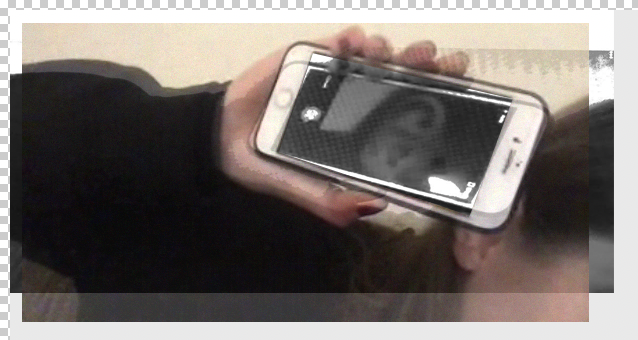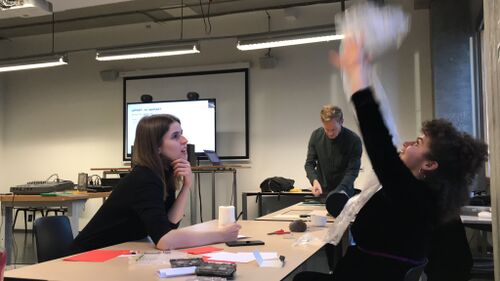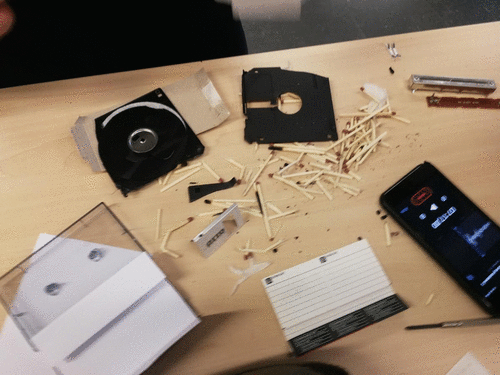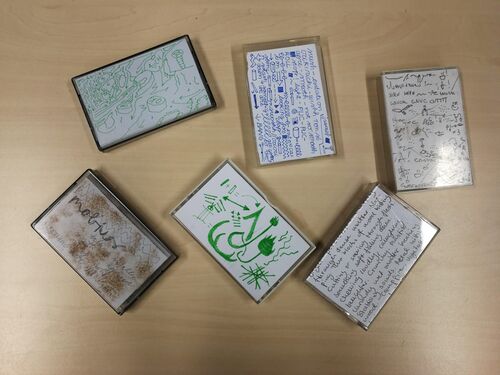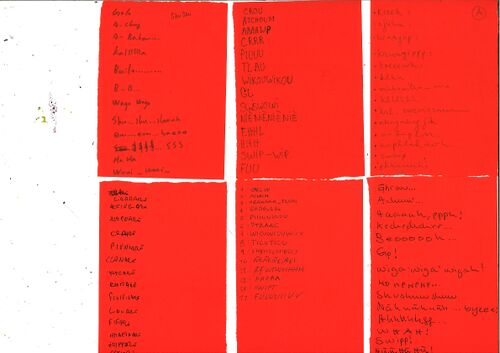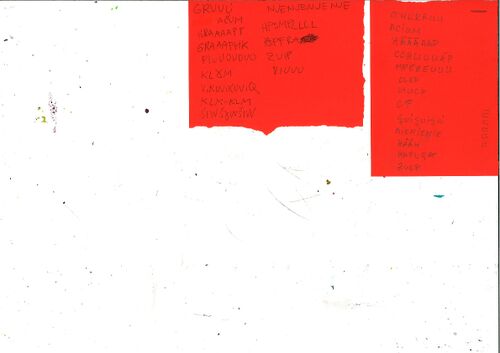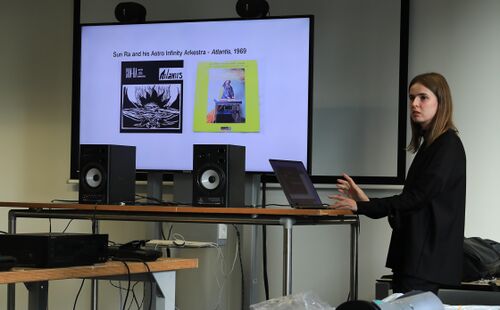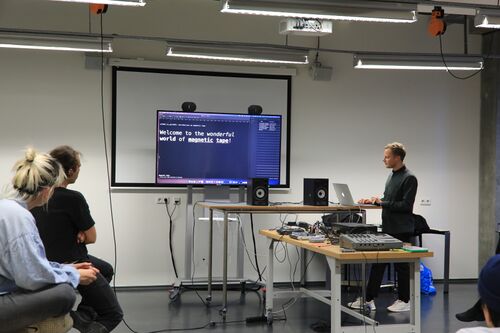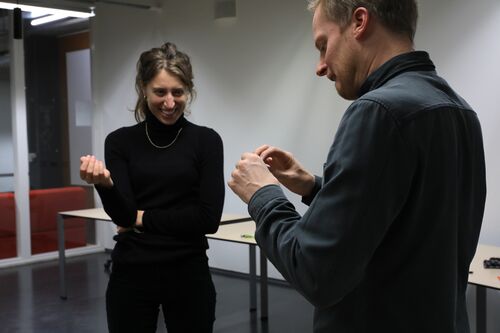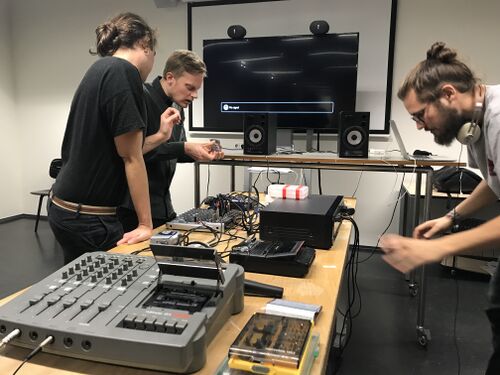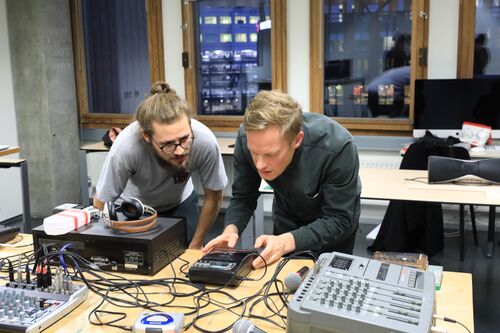A)PART to de(PART
Revision as of 17:32, 26 November 2020 by Markvandenheuvel (talk | contribs)
Welcome to the Py.rate.chnic Session:
a)PART_to_de(PART
invitation
Thursday, 19. 11. 2020, 14.00-18.00
XPUB1 & XPUB2 Py.rate.chnic Session
by Ioana, Mark and Tisa.
People that joined: Federico, Camilo, Anna, Clitch, Yu-Chin, Max.
...
What is sonic fiction?
You don't know? We have a slight idea.
Sonic fiction presentation by Ioana: File:Sonic fiction py.rate.chnic.pdf
You will get to know while doing:
- listening
- deconstructing
- making sounds
- recording sounds
- naming
- labeling
- choosing
- articulating
- composing
- performing
#tapeloops #asmr #weirdobjects #tinysounds #diyzine #fiction
Bring to the workshop:
- any kind of an object to deconstruct (completely demolish, it will never be the same)
- a laptop/smartphone (a sound recording device of your choice)
workshop structure
Part 1: GENERAL INTRO
- What are we going to do?: ~10 min
Part 2: WARM-UP!
- warm up excercise [Tisa]: ~30min
Part 3: AN INTRODUCTION TO SONIC FICTION
- intro [Ioana] on decontruction sound and sonic fiction: ~10-15min
- playlist, theory, outcomes sketch
Part 4: ACCUMULATION/PRODUCTION
- split into duos/trios explain divide tasks
- take a picture of the object
- set up recording (sound (tape or digital) and video)
- deconstruct object & take notes
- break
- listen & choose sound (long continuous sound of proces and sample for short loops)
Part 5: COMPOSITION
- create tape loops
- record sound on tape loops
- label sounds (text, also imagery)
- record sound on tape (long continuous and loops)
Part 6: LISTENING & PERFORMING
- performing a piece with the material
- reconstruction (merging) of the objects
The exercises
for focus, asociation flow, sensibility to sound, imagination, narratives, ...
(warm up, led by Tisa)
- Everybody stands up and makes a circle.
- Physical warmup (each person proposes an exercise, all repeat)
- Free movement (closed eyes, moving as you need, making sounds as they come)
- Shaking (shaking different bodyparts and making a relaxed sound)
- Repetition (standing in a circle, one makes a gesture and a sound, the next one repeats it as precisely as possible, and so forth)
- Rhythm (establishing a common rythm, repetition of "rak-pak shalala", passing words)
- Passing (one makes a sound, the next one in the circle responds with a word that describes the sound, next one translates it back to sound, etc.)
- Associations (passing words associations in a circle - also sounds and words in any language, keeping the rhythm)
- Onomatopoetic transcriptions (one makes a sound, everybody repeats the sound, each writes down the sound, 10x)
- Echo exchange (people exchange the papers, vocalizing the written in a repeated manner (loop), while holding their palms in front of their mouth in order to amplify the sound for them)
- Analog asmr (insert index finger into your ear, tap and stratch and play on your hand, listen)
Photos
made by Yu-Ching
File:A)PART to de(PART magnetic-tape-presentation.pdf
Feedback:
A moment of reflection was now lost in time:
- listen to loops & presenting tapes
- discussion regarding decontruction in this context: Why?
Questions to improve the
- How can we emphasize the connections between the parts more?
- How can we define and communicate a more clear 'goal'?
- - the goal is to....
- - as a method we use...
Manetta's notes:

